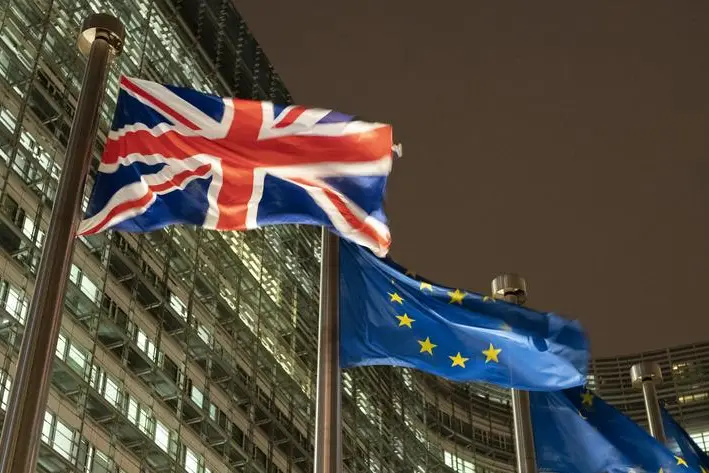PHOTO
BRUSSELS - The European Commission launched four new legal procedures against Britain on Friday after the British parliament's lower house cleared a bill to scrap some of the rules governing post-Brexit trading arrangements for Northern Ireland.
The Commission, which oversees EU-UK relations, said Britain's unwillingness to engage in meaningful discussions on the protocol governing those trading arrangements and the House of Commons' passage of the Northern Ireland Protocol bill undermined a spirit of cooperation.
It brings to seven the number of "infringement procedures" the European Commission has launched over what it sees as Britain's failure to respect Northern Ireland trade aspects of the Brexit divorce deal agreed by both sides.
The procedures could result in the European Court of Justice (ECJ) imposing fines, although this would likely not happen for at least a year. The Commission said it stood ready to launch further procedures to protect the EU single market from British violations of the protocol.
Britain did not immediately respond to a request for comment.
London has proposed scrapping some checks on goods from the rest of the United Kingdom arriving in the British province and challenged the role of the ECJ to decide on parts of the post-Brexit arrangement agreed by the EU and Britain.
The four new legal procedures do not relate to Britain's new plans, but to the accusation that Britain has not implemented the protocol.
Northern Ireland is in the EU single market for goods, meaning imports from the rest of the United Kingdom are subject to customs declarations and sometimes require checks on their arrival.
The arrangement was set to avoid reinstating border controls between Northern Ireland and EU member Ireland, but has inflamed pro-British unionist parties by effectively creating a border in the Irish Sea.
The Commission has charged Britain with failing to comply with customs requirements for goods moving from Northern Ireland to Britain, not transposing EU rules on excise duties in general and for alcohol and not implementing EU rules on sales tax for e-commerce.
The Commission has given Britain two months to respond.
(Reporting by Philip Blenkinsop; editing by John Chalmers and Andrew Heavens)





















